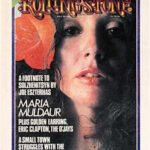Walt Whitman’s “Song of Myself” stands as a monumental work in American literature, a cornerstone of his collection “Leaves of Grass.” This poem, far from being a simple ode to the ego, is an expansive exploration of identity, nature, democracy, and the interconnectedness of all beings. Published in various evolving versions throughout Whitman’s life, “Song of Myself” remains a powerful and influential piece, inviting readers to delve into its rich layers of meaning and experience the world through Whitman’s unique and revolutionary vision.
Delving into Whitman’s Poetic Revolution in “Song of Myself”
“Song of Myself” is not merely a poem; it’s a declaration of independence from traditional poetic forms and societal norms. Whitman boldly breaks away from rhyme and meter, embracing free verse to mirror the natural rhythms of speech and thought. This stylistic choice is fundamental to the poem’s message: a celebration of the individual and the liberation of the human spirit. The poem’s sprawling structure, divided into numbered sections, mirrors the vastness of its themes, encompassing everything from the minute details of nature to the grandest philosophical questions.
Whitman’s work was initially met with mixed reactions, largely due to its unconventional style and frank treatment of subjects considered taboo at the time. However, “Song of Myself” has endured, becoming recognized as a groundbreaking work that paved the way for modern poetry and continues to resonate with readers seeking a deeper understanding of themselves and the world around them.
Key Themes in “Song of Myself”: A Journey Through Whitman’s Vision
“Song of Myself” is a tapestry woven with numerous interconnected themes, each contributing to the poem’s overarching message of unity and self-discovery.
Self-Celebration and Identity: “I celebrate myself, and sing myself”
The opening lines of “Song of Myself” immediately establish the poem’s central focus: the self. However, Whitman’s self-celebration is not narcissistic. It’s an invitation to recognize the inherent worth and divinity within every individual. As he states, “For every atom belonging to me as good belongs to you,” Whitman emphasizes the shared humanity that binds us together.
In section 2, this theme further develops as Whitman immerses himself in sensory experiences, declaring, “I breathe the fragrance myself and know it and like it.” He embraces the physical and sensual world, finding joy and wonder in the simple act of being alive and present in his body. This sensual appreciation is crucial to understanding Whitman’s holistic view of self, encompassing both the physical and the spiritual.
Connection with Nature: “I lean and loafe at my ease observing a spear of summer grass.”
Nature is not merely a backdrop in “Song of Myself”; it’s an integral part of Whitman’s identity and a source of profound wisdom. He finds solace and inspiration in the natural world, observing “a spear of summer grass” with the same reverence he might give to a grand philosophical idea. This democratic approach to observation, finding significance in the seemingly mundane, is characteristic of Whitman’s poetic vision.
Section 6, with the famous lines, “A child said What is the grass? fetching it to me with full hands,” exemplifies this deep connection. Whitman contemplates the grass as a symbol of life, death, and rebirth, seeing it as a universal element that connects all beings. His musings on the grass reveal his belief in nature’s inherent ability to teach and to connect us to deeper truths about existence.
Universal Brotherhood and Democracy: “And that all the men ever born are also my brothers, and the women my sisters and lovers”
Whitman’s democratic ideals permeate “Song of Myself.” He envisions a world where all individuals are equal and interconnected, regardless of social status, race, or creed. This vision extends beyond humanity to encompass all living things, fostering a sense of universal brotherhood and sisterhood.
Section 5 powerfully articulates this theme. Whitman declares, “And that all the men ever born are also my brothers, and the women my sisters and lovers.” This radical inclusivity was a departure from the societal norms of his time and remains a potent message of unity and acceptance. He sees the “spirit of God” as the “brother of my own,” extending kinship to the divine and blurring the lines between the sacred and the secular.
Life, Death, and Transcendence: “The smallest sprout shows there is really no death”
“Song of Myself” grapples with profound questions about life and death, ultimately offering a message of transcendence and the cyclical nature of existence. Whitman rejects traditional notions of death as an ending, instead viewing it as a transition to another form of life.
In section 3, Whitman asserts, “There was never any more inception than there is now, / Nor any more youth or age than there is now.” He emphasizes the eternal present, suggesting that life and death are not opposing forces but rather continuous aspects of existence. Section 6 further reinforces this idea with the line, “The smallest sprout shows there is really no death.” Whitman finds evidence of immortality in the natural world, seeing life’s ongoing renewal in even the simplest forms of vegetation.
The Lasting Impact of “Song of Myself”
Walt Whitman’s “Song of Myself” is more than just a poem; it’s a cultural landmark. Its innovative free verse style revolutionized poetry, influencing generations of poets to come. The poem’s themes of self-reliance, individualism, and democratic ideals have resonated deeply with readers seeking to break free from convention and embrace their authentic selves. “Song of Myself” continues to be studied and celebrated for its profound insights into the human condition and its enduring message of unity, self-discovery, and the boundless potential of the individual spirit. It encourages us to look inward, to connect with nature, and to recognize the shared humanity that binds us all, echoing Whitman’s powerful call to “listen to all sides and filter them from your self.”


